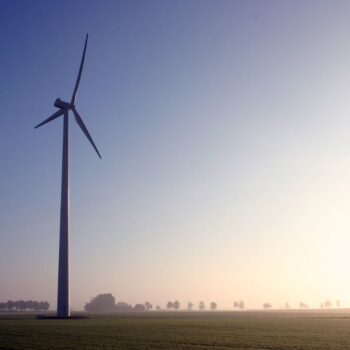All eyes are on Germany this fall. With Angela Merkel stepping down after 16 years and polls predicting a tight race, the question of how these federal elections will change the direction of German politics is subject to much speculation.
Climate change has been a prominent and hotly debated topic in the election campaign so far. After devastating floods hit western Germany this July, the consequences of climate change have become as visible to German voters as never before. The new government will be under pressure to deliver fast on climate – at home and abroad.
New government will have to be a delivery champion
Just before the summer break and as an immediate response to a Constitutional Court decision, the outgoing government adopted a new national climate target of reaching climate neutrality by 2045. This put Germany ahead in advanced economies’ race towards net zero. However, time has run out for the outgoing government to adopt the necessary measures to achieve that new target. As the International Energy Agency’s recent Net Zero Report has shown, deadlines for important policy milestones on the road to global net zero are approaching fast – be it a ban on new fossil fuel boilers by 2025, no new internal combustion engine car sales by 2035, or the overall net zero emissions electricity systems by 2035, starting with coal-free power by 2030. Therefore, the new government will have to kick-start delivery on emission reduction targets immediately – especially since the newest projections see Germany’s CO2 emissions on the highest rise since 1990.
Favourable conditions for focusing on the “how” of climate protection
Election campaigns naturally highlight the differences in political parties’ visions for the future. But it is worth stressing that – apart from the far-right Alternative für Deutschland – Germany’s main political parties stand firmly behind the vision of a climate neutral country. The idea of climate neutrality as an opportunity for Germany to become a global frontrunner in zero carbon technologies and industries is prominent across parties. This can be a powerful basis for consensus in a coalition agreement.
The newly elected German government will need to hit the ground running to spearhead not only domestic but European, and international, climate ambition.
Still, political programmes diverge when it comes to the granularity of outlining their vision of the path to net zero.
Differences include:
- Urgency and pace of delivery: e.g. the Left party (DIE LINKE) striving for climate neutrality by 2035, while the Liberals (FDP) reference Germany’s and the EU’s 2050 climate neutrality obligation
- Concrete benchmarks: e.g. the Social Democrats (SPD) aiming at 100% renewable electricity by 2040 concretely, while Christian Democrats(CDU) only declare Germany needs 100% renewable energy ‘as fast as possible’.
- How strongly to rely on market-based tools: while Liberals (FDP) see a rising CO2 price as the sole policy tool for reducing fossil fuels and rally against regulatory instruments, the Greens (Bündnis 90/DIE GRÜNEN) advocate for a mix of CO2 pricing, incentives, regulative policies and the removal of subsidies for fossil fuels.
Time to shine: The world needs new climate leadership
COP26, the crucial climate conference in Glasgow, is around the corner. In the EU, negotiations on the new raft of climate and energy laws have already begun. The newly elected German government will need to hit the ground running to spearhead not only domestic but European, and international, climate ambition.
Germany will be taking over the G7 presidency as early as 2022. This will be a unique opportunity to set an ambitious climate agenda and drive forward climate-friendly structural reform.
In the most open election in recent German history, one thing is certain: the climate neutrality goal by 2045 is here to stay.
In addition, Germany will have an important role to play in upcoming negotiations for delivering deep decarbonisation across the EU’s economy. There is an opportunity for the new German government to help broker ambitious political deals on what will be contentious files, breaking the bad habit of protecting fossil incumbent interests. This would allow Germany to win back its reputation as a climate and energy transition frontrunner.
All eyes are now on Berlin to see whether Germans’ widely perceived need for more action on climate change will result in a political shift that goes beyond replacing Angela Merkel. With volatile polling, potential options for coalition constellations have multiplied. In the most open election in recent German history, one thing is certain: the climate neutrality goal by 2045 is here to stay. Germany’s next government will need to move fast to deliver the policies that will get us there.


